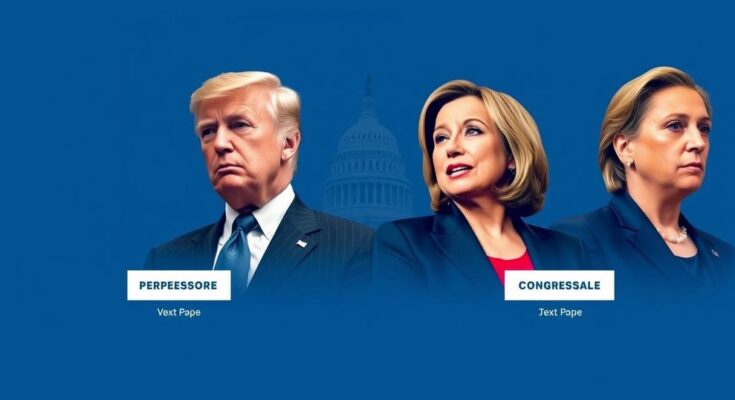Republican candidates in competitive congressional districts are attempting to moderate their past questioning of the 2020 election results while presenting themselves as pragmatic alternatives to Democratic incumbents. The shift in Republican ideology is evident, with candidates denying or refusing to endorse the legitimacy of recent elections stepping into crucial races. Should they gain seats, they may influence future electoral integrity and the ideological direction of Congress.
In the ongoing pursuit for congressional seats, Republican candidates are increasingly attempting to moderate their stances on the contentious aftermath of the 2020 election. In a representative instance, three candidates contending for the G.O.P. nomination in a competitive congressional district in Colorado were posed the question of whether the election results were “stolen from President Donald Trump.” Their responses varied, ranging from an unsure affirmation to a definitive denial, highlighting the diverse approaches among Republican candidates in addressing election integrity. Gabe Evans, the eventual nominee, exhibited a nuanced response, stating, “No-ish,” in an attempt to position himself as a pragmatic figure appealing to a broader electorate. As Evans campaigns to unseat incumbent Democrat Yadira Caraveo, he emphasizes a moderate image, labeling himself a “common-sense” Republican. However, his election would contribute to an emergent faction within the party that increasingly reflects an extremist viewpoint. Across the nation, Republicans who have sought to delegitimize the 2020 election results or who harbor rigid ideological positions on significant social issues are candidates in pivotal congressional races. These individuals are poised to supplant the more traditional conservative voices that previously characterized the G.O.P., a shift resulting from the expulsion of members perceived as insufficiently aligned with former President Trump’s policies. If these Republican candidates secure their seats and maintain majority control in the House, their influence will extend to the certification of the upcoming 2024 presidential election and the ideological direction of the Congress to come, potentially reshaping policy debates for the foreseeable future.
The article discusses the evolving landscape of Republican candidates seeking congressional seats, particularly in swing districts where previous conservative norms appear to be giving way to extremism. It highlights the strategic navigations these candidates make regarding controversial subjects, such as the legitimacy of the 2020 election and their adherence to hard-right social policies. The implication of their potential victories not only affects the immediate electoral outcomes but also forecasts significant shifts in Congressional dynamics and Republican Party ideology leading into future elections.
The race for Congress this election cycle is characterized by a clear shift towards extremism among Republican candidates, who increasingly view moderate and traditional conservatism as insufficient. As they grapple with their past positions on election integrity, their electoral success could have profound implications for the G.O.P. overall. Winning these critical races might empower a new generation of Republicans who align more closely with hardline views, influencing the future course of legislation and governance.
Original Source: www.nytimes.com




